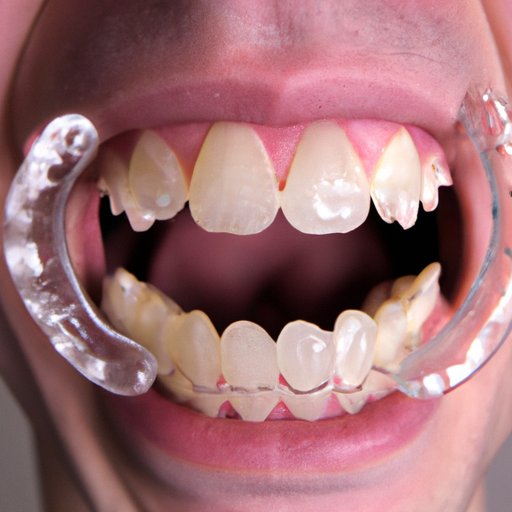
How to Stop Grinding Teeth at Night: Expert Tips and Advice
Teeth grinding or bruxism refers to the involuntary gnashing, clenching, or rubbing of teeth, which can occur during the day or night. In this article, we will be focusing on teeth grinding at night and how to prevent it. Teeth grinding can have a negative impact on dental health and cause damage to the teeth and jaw. However, there are several ways to address teeth grinding and stop it from happening at night. To effectively stop grinding teeth at night, it is essential to seek expert opinion and implement lifestyle changes.
Talk to Your Dentist
The first step to address teeth grinding is to consult your dentist. Your dentist will evaluate the extent of your teeth grinding habit and recommend suitable treatment. They can identify the underlying cause of your teeth grinding and provide advice on how to prevent and manage it. Your dentist may recommend the following treatments:
- Dental correction: If teeth grinding is caused by a misaligned bite or other dental issues, your dentist may recommend dental correction to prevent further damage to your teeth.
- Muscle relaxants: If your teeth grinding is caused by muscle tension, your dentist may recommend muscle relaxants to help relax the jaw muscles.
- Nightguards: These are custom-made appliances that fit over your teeth and cushion the impact of grinding and clenching. Wearing a nightguard can help protect your teeth from damage and reduce pain caused by bruxism.
It is important to follow your dentist’s advice to ensure maximum effectiveness of the treatments they recommend.
Relaxation Techniques
Stress is one of the leading causes of teeth grinding, especially at night. Reducing stress can help to alleviate teeth grinding. Relaxation techniques such as meditation, deep breathing, and yoga can help reduce stress and promote relaxation. These techniques can be practiced before bedtime to help you relax and stay calm while sleeping.
Use a Mouthguard
Mouthguards are usually recommended to reduce the impact of grinding and clenching. A mouthguard is a custom-made appliance that fits over your teeth and cushions the impact of grinding and clenching. There are different types of mouthguards, including:
- Stock mouthguards: These are pre-made and ready to wear, but may not fit perfectly, which can affect their effectiveness in cushioning grinding.
- Boil and bite mouthguards: These are made from a thermoplastic material that can be softened in water. The softened material is then shaped around the teeth and allowed to cool, forming a custom fit.
- Custom-fitted mouthguards: These are made specifically for your teeth by your dentist and offer the best protection and fit.
It is important to follow your dentist’s guidelines on using the mouthguard to ensure maximum protection. Mouthguards should be cleaned regularly and replaced as recommended by your dentist.
Adjust Your Sleeping Position
Sleeping position can also affect the likelihood of teeth grinding. Sleeping on your stomach or with your head tilted at an awkward angle can increase the likelihood of teeth grinding. Sleeping on your side or back may minimize teeth grinding. Using a supportive pillow can also help maintain a good sleeping position and reduce the likelihood of teeth grinding.
Limit Alcohol and Tobacco Consumption
Tobacco and excessive alcohol consumption can lead to teeth grinding. To reduce the likelihood of teeth grinding, it is recommended to avoid tobacco products altogether and limit alcohol intake. Engaging in alternative activities such as exercise or hobbies can help to reduce the urge to smoke or drink excessively.
Practice Good Sleep Hygiene
Good sleep hygiene can combat sleep disorders, including teeth grinding. Good sleep hygiene includes practices such as:
- Maintaining a consistent sleep schedule
- Avoiding stimulating activities before bedtime
- Creating a relaxing sleep environment
- Avoiding electronics before bedtime
Electronic devices emit blue light which can disrupt sleep. To minimize their impact, it is recommended to minimize distractions from electronics before bedtime.
Conclusion
Stopping teeth grinding at night is possible with the right treatment and lifestyle changes. Seeking advice from your dentist is the first step in addressing this problem. Relaxation techniques, mouthguards, adjusting your sleeping position, limiting alcohol and tobacco consumption, and practicing good sleep hygiene can all contribute to preventing teeth grinding. By implementing these remedies, you can protect your dental health and prevent further damage from teeth grinding.




